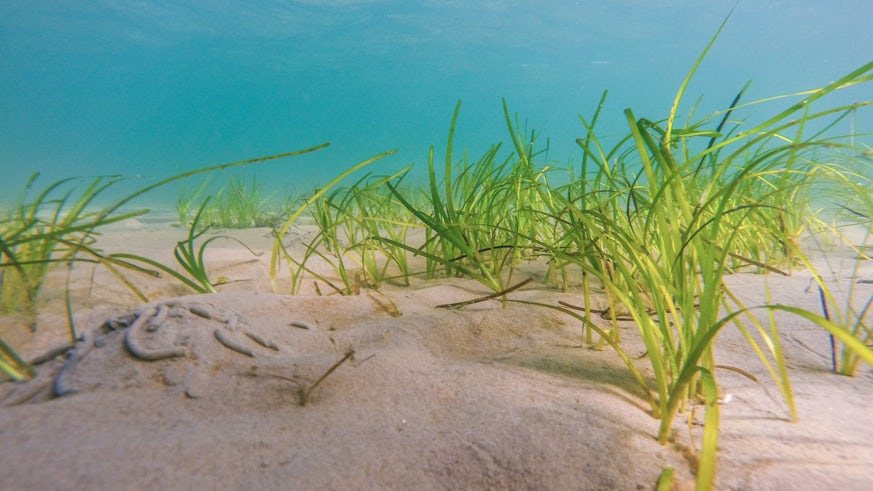Saving our seagrass
8 March 2016

Urgent action needed to stem loss of world’s seagrass meadows
Urgent action is required to stem the loss of the world's seagrass meadows, prioritise their protection and recognise the array of ecosystem services that they provide.
Writing in the Journal of Applied Ecology, Dr Leanne Cullen-Unsworth of Cardiff University and Dr Richard Unsworth of Swansea University outline strategies to reverse the global decline of seagrass meadows.
“Our seagrass meadows are a global resource providing a myriad of ecosystem services including significant support for global fisheries,” said Dr Cullen-Unsworth, who is based at Cardiff University’s Sustainable Places Research Institute.
“The ecological value of seagrass meadows is irrefutable, yet loss continues at an accelerating rate. We urgently need to minimise damage to seagrass, especially in the face of rapid and global environmental change.”
In their article, the researchers highlight poor water quality as the biggest global concern facing seagrass, suggesting that simple actions across industries, catchments, jurisdictions and communities can help improve the situation.
Reducing the impact of boats, stopping the spread of invasive species, developing science-industry partnerships, and promoting sustainable exploitation of seagrass associated species are also explained as key ways of enhancing the long-term resilience of seagrass meadows.
“In addition, seagrass conservation requires more long-term investment backed up by improved policy and legislation to support local and regional management of these systems as part of connected seascape,” said Dr Unsworth of Swansea University’s Department of Biosciences.
“Critically improved education and widespread awareness raising is needed so that the hundreds of millions of people living in close vicinity to seagrass meadows understand their importance and sensitivity,” he added.
Their paper - Strategies to enhance the resilience of the world's seagrass meadows - is available to read here.
The researchers also run the marine conservation charity Project Seagrass which has been shortlisted for a £50,000 People’s Lottery Award. Project Seagrass aims to connect 15,000 children from across north Wales, with the marine world and the resources that our seas provide, whilst inspiring them to become future guardians of our oceans. People can vote for the project until 13th March 2016.